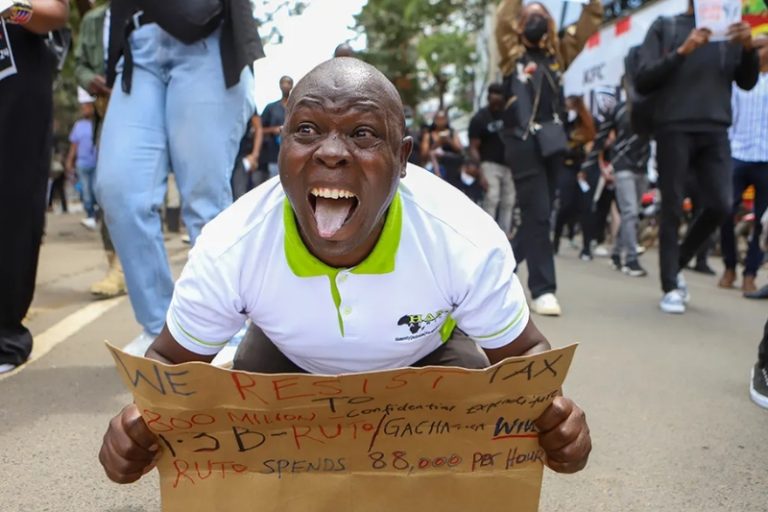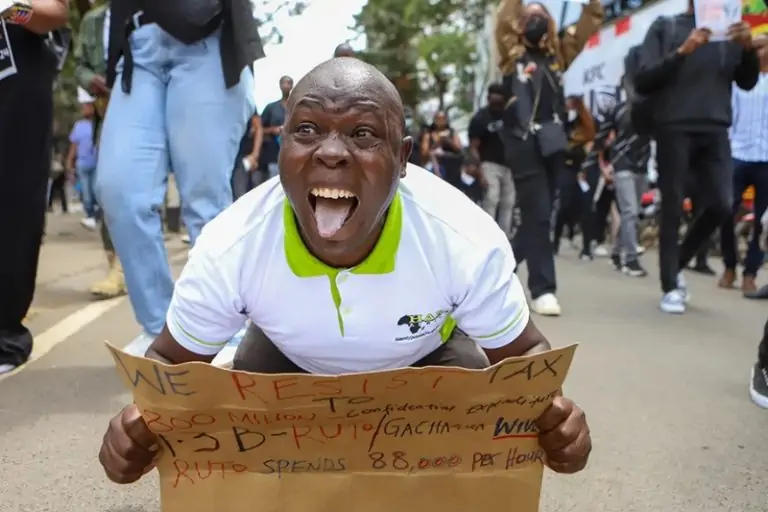

kenya arrests more than 200 demonstrators opposing proposed tax increases
More than 200 protestors have been arrested in Nairobi, Kenya’s capital, as rallies over expected tax increases in a forthcoming finance package headed for parliament continue. Civil society groups have promised to keep on with the demonstrations, including a scheduled sit-down outside the parliament buildings, despite the arrests.
Adamson Bungei, the Nairobi Police Commander, announced on Tuesday that no group had received permission to demonstrate in the city. Although Kenya’s constitution guarantees the right to peaceful demonstrations, organizers must first inform the police in advance, who usually accept until security issues arise.
Police used tear gas canisters to disperse hundreds of protestors, leading establishments to briefly close for concern about looting. Among the demonstrators was attorney Wanjohi Gachie, who voiced his concern at the possible weight the suggested tax increases would impose on every Kenyan. “We are fighting for their rights as well; thus, I’m asking the cops not to arrest or beat us,” he stated.
President William Ruto and ruling party MPs shelved some of the main tax ideas in the bill following a Tuesday morning meeting. Kuria Kimani, the head of the finance committee, announced the abandonment of the plan to impose a 16% VAT on bread. Furthermore, the proposed 2.5% annual motor vehicle insurance fee and a levy on environmentally damaging products were changed to exclude locally produced goods, thereby emphasizing solely imports.
Emphasizing the imperative of the nation becoming financially self-sustaining, President Ruto supported the proposed levies. “You must live within your means; that’s the entire principle,” he said. “I persuaded and made a case to the Kenyan people that we must start increasing our revenue.”
Raila Odinga, the opposition leader, urged legislators to examine the measure and eliminate phrases that add more weight to the poor. Early in June, Odinga attacked the measure as an “investment killer” and a major hardship for millions of impoverished Kenyans. Should the proposed financial bill pass, opposition leader Kalonzo Musyoka warned that weekly demonstrations would resume.
Legislators are due to start discussing the measure on Wednesday; Monday is the vote day. Last year, the financial law raised the VAT on petroleum goods from 8% to 16% and included a 1.5% house tax on gross income for salaried people, generating general concern over the rising cost of living in Kenya.
African football teams struggle intensely in the World Cup Qualification rounds to earn their place on the international football stage.…
The journey toward the 2026 FIFA World Cup is rapidly intensifying for all African teams, who now hold a historical…
The cricket authority in Zimbabwe will organize matches between top international teams in a major cricket event expected to succeed…
In 2025 the South African Social Security Agency (SASSA) announced its designated dates for social grant payments that benefits millions…
Africa is taking big steps by entering the global green technology manufacturing market to stop being just a supplier of…
Two mobile telecom leaders, MTN Group and Airtel Africa, joined forces to create a new digital infrastructure system throughout African…
This website uses cookies.